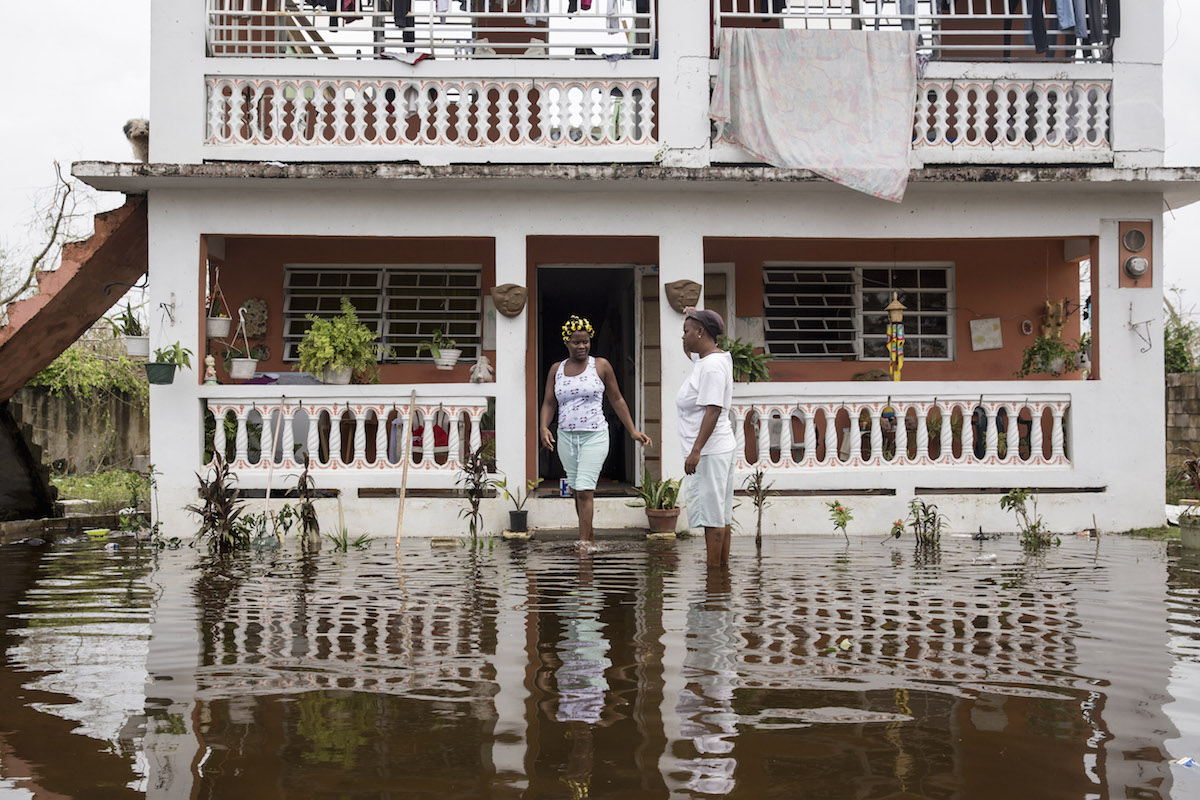Residents wade through flood waters at their home days after Hurricane Maria made landfall, on September 22, 2017 in Loiza, Puerto Rico. Photo by Alex Wroblewski/Getty Images News
[...] The Category 4 storm left the entire island without power. But Salvador and his mom, who had a generator and a cistern, were in a better position than most, and it made him realize just how many people didn’t have the most basic of necessities. His own grandparents had no electricity and had to come stay with them in their Condado neighborhood in San Juan. His grandpa brought his radio – which became their only lifeline to the outside world – and Salvador learned just how much people were suffering throughout the island.
There were two things that he couldn’t get out of his mind: people didn’t have light or the ability to wash their clothes. With Puerto Rican officials estimating that it take up to six months for the entire island to have power again, Salvador began thinking of how this would impact people across the island. [...]
After speaking to his mom about this, she put him in contact with two people, a military veteran who served in Afghanistan and Neha Misra. The vet told him about the hand-cranked washing machines they used when they didn’t have electricity, which is how he ended up contacting The Laundry Alternative, a company that produces a $45 portable
WonderWash machine. And his mom’s friend, Misra, who works with Solar Sister – a company that provides solar-powered lamps to communities without electricity – helped him figure out how he could give light to his fellow Puerto Ricans. Because Salvador didn’t have access to the internet and his text messages were painfully slow, Misra helped him set up a crowdfunding page on
Generosity. The campaign launched about a week after Hurricane Irma.
Titled Light and Hope For Puerto Rico, Salvador aims to raise $100,000 so he can help 1,000 families. On top of working with The Laundry Alternative and Solar Sister, he’s also enlisted
Cleancult, which has pledged to donate 1,000 gallons of laundry soap, and Omnivoltaic and Schneider Electric will also donate solar lights. Right now, the products will cost about $100 per family, but Salvador is hoping to drive the cost down a bit more so that he can help even more people.
The benevolent teen will donate the products to Loiza, a largely Afro-Puerto Rican community that was hit by both Hurricanes Irma and Maria, in the first week of November. Right now, he’s at about 60 percent of his goal, and he hopes to reach $100,000 in the next week or so. Donate to the campaign
here.






